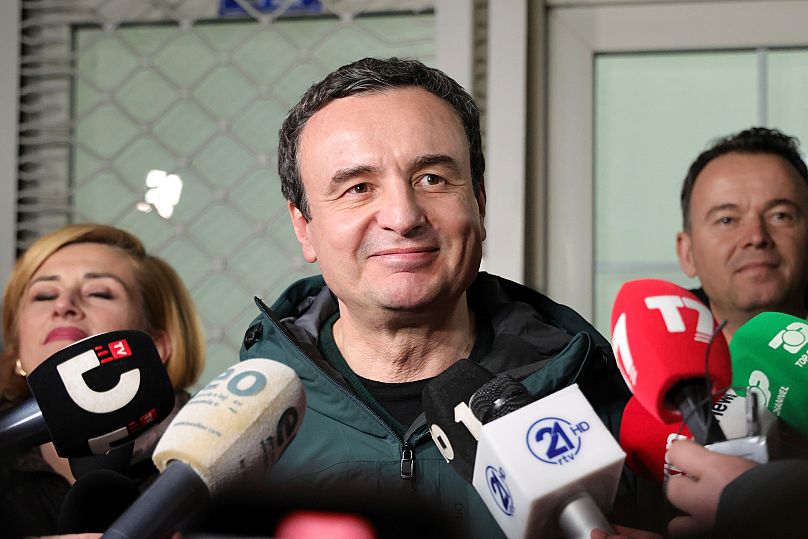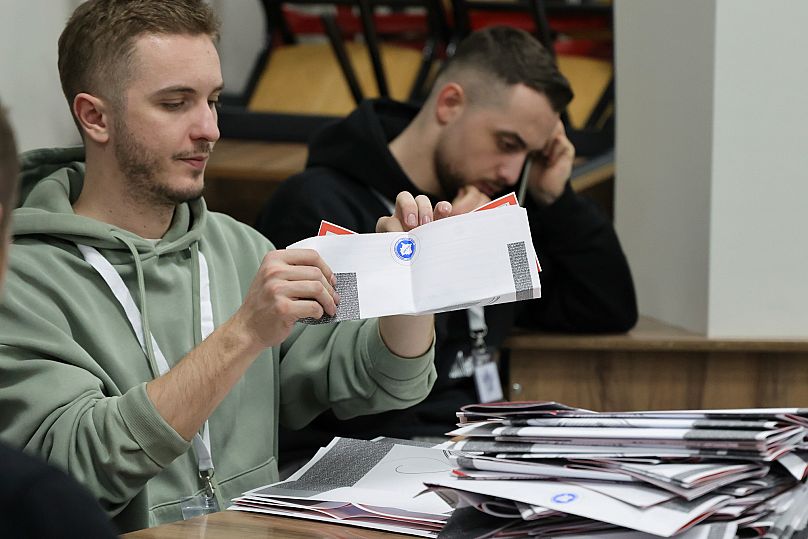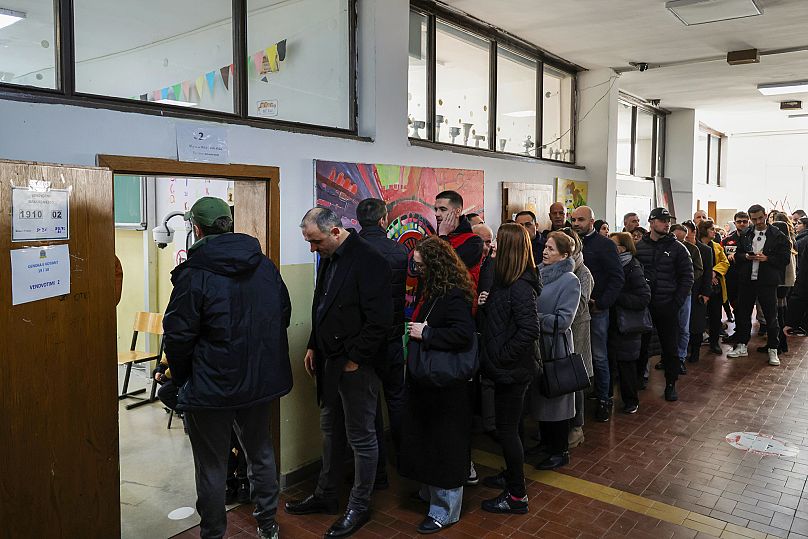Kosovans headed to the polls against a backdrop of a stagnant economy and renewed ethnic tensions but the Central Election Commission says turnout was low.
Preliminary results from Kosovo’s legislative elections show incumbent Prime Minister Albin Kurti's party in the lead, but short of the majority needed to govern alone.
With 73% of the votes counted, Kurti's leftist Self-Determination Movement Party, or Vetevendosje!, won 41.99%.
Speaking to the press, Kurti said the result was "confirmation of our good governance, progressive and democratic leadership."
"Our winning coalition will form the new government 'Kurti 3' and this way we will continue with the work that we started but also much more," he told reporters.
The Democratic Party of Kosovo (PDK) is currently in second place at 21.4%, the Democratic League of Kosovo (LDK) is at 19.3%, the Coalition for a Winning Kosovo at 7.2%, and the List for the Family rounds out the top five with 1.8% of the vote.
On Sunday afternoon, the Central Election Commission said voter turnout was low, hovering just under 28% at 3pm local time.
If Kurti's party fails to win the necessary majority to govern alone and he fails to form a cabinet, that might leave open the possibility for the other two contenders to join ranks in a two-party coalition.
But Kurti has previously ruled out working with any of the opposition parties.
The two centre-right parties are PDK, whose main leaders remain detained at an international criminal tribunal at The Hague accused of war crimes, and the free market-oriented LDK, the oldest party in the country that lost much of its support after the death in 2006 of its leader, Ibrahim Rugova.
Questions over funding remain
Kurti has been at odds with Western powers after his cabinet took several steps that raised tensions with Serbia and ethnic Serbs, including the ban on the use of the Serbian currency and transfers from Serbia to Kosovo’s ethnic Serb minority that depends on Belgrade’s social services and payments.
The US, the EU and the NATO-led peacekeeping force KFOR have urged the government in Pristina to refrain from unilateral actions, fearing the revival of inter-ethnic conflict.
Meanwhile, Brussels has suspended funding for some projects and set conditions for their gradual resumption, linked to Kosovo taking steps to de-escalate tensions in the north, where most of the ethnic Serb minority lives.
Kosovo has also been affected by Washington's 90-day freeze on funding for different projects through the US Agency for International Development (USAID), which has been key in promoting the country’s growth.
This is the first time since Kosovo's independence in 2008 that its parliament has completed a full four-year mandate. It is the ninth parliamentary vote in Kosovo since the end of the 1998-1999 conflict between the government in Belgrade and ethnic Albanian separatists, which saw Serbian forces pushed out following a 78-day NATO air campaign. Serbia does not recognise Kosovo’s independence, a move backed by Russia and China, while major Western countries do.
Some two million eligible voters have cast their ballots to elect 120 lawmakers from more than 1,200 candidates, mostly from one of 27 political groupings. Regardless of election results, the Kosovar parliament has 20 seats reserved for minorities, 10 of which are for the Serb minority.
A team of 100 observers from the EU, 18 from the Council of Europe and about 1,600 others from international or local organisations monitored the vote.
Kosovo, with a population of 1.6 million, is one of the poorest countries in Europe. Its annual GDP per capita amounts to less than €6,000.
The parties made big-ticket pledges to increase public salaries and pensions, improve education and health services, and fight poverty. However, they did not explain where the money would come from nor how they would attract more foreign investment.














